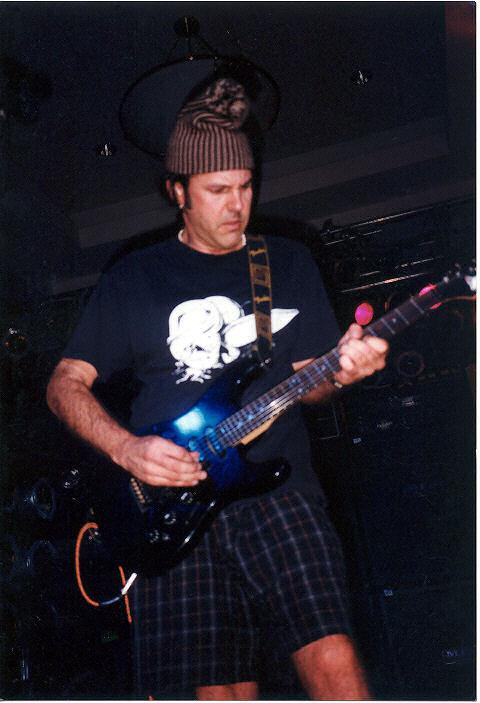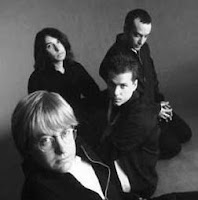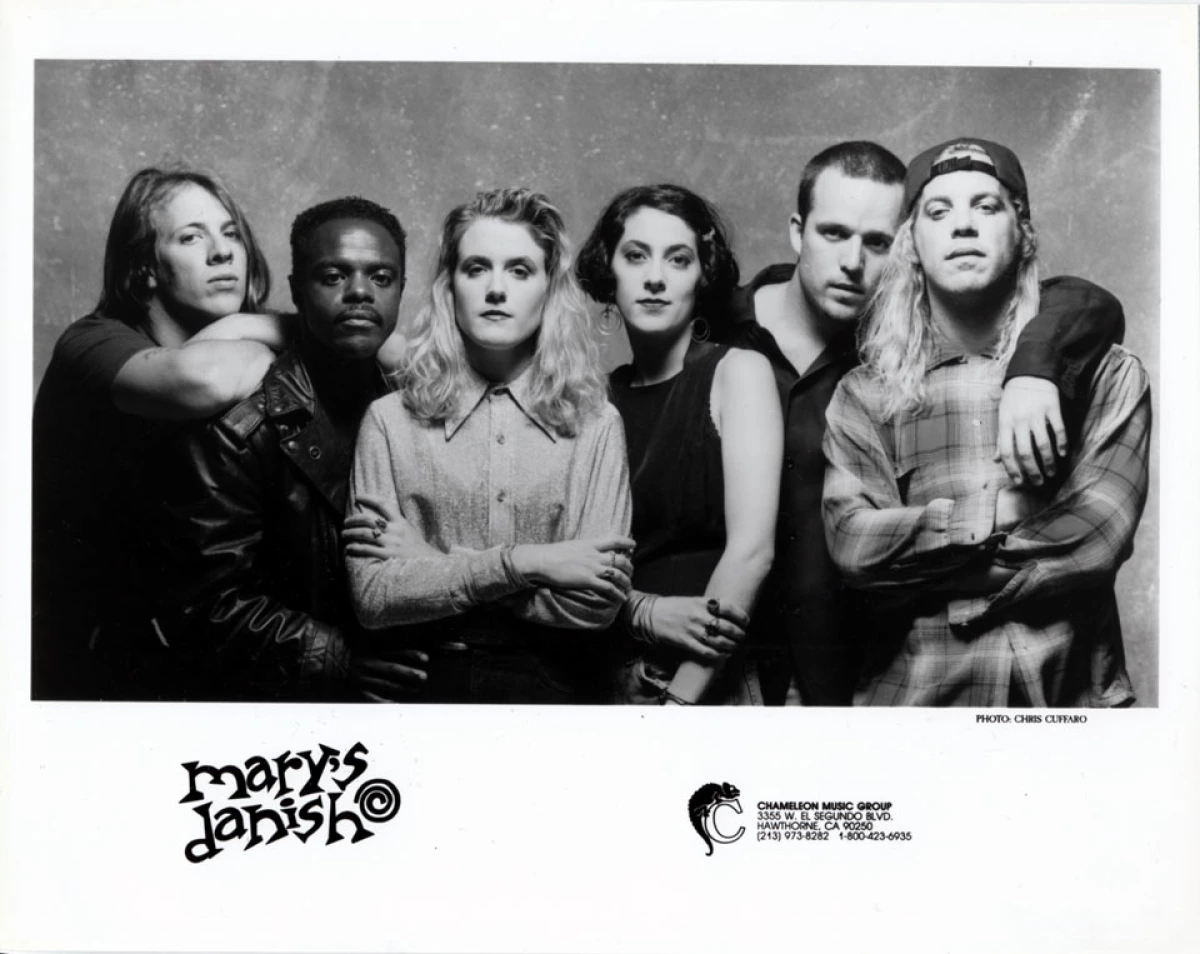Blame It On…..: An Interview with Jer Herring (Dink)
Dink were an alternative/industrial band from Kent, Ohio. Industrial sounding bands were springing up in all sort of obscure locations like Missouri (Gravity Kills) and Arizona (Machines of Loving Grace) but Dink were different. They had two singers and had more of a punk vibe in their approach and their sound. Listen to songs like “Never Go to Sleep Again,” “3 Big Bags” and their modest hit single “Green Mind.” The band were notable for about a year before internal struggles and label problems pulled the band apart circa 1997 but singer/guitarist Jer Herring sat down for an interview about the band’s history including the D.I.Y. documentary that was made about the band several years ago. Do yourself a favor and go on YouTube and listen to some Dink, because none of their catalogue is available digitally.
Discography:
Dink (Capitol, 1994)
Blame it On Tito EP (Capitol, 1996)
Notable Songs: Green Mind, Angels, 3 Big Bags
Pete Crigler: How did you become interested in music?
Jer Herring: The Beatles. I had twin aunts who were teenagers in the late 60’s when I was like 6 years old and I would spend hours with them listening to the Beatles.
Pete: How did Dink come together and what was the scene like in Kent at the time?
Jer:
Kent had a really robust music scene and there was a lot of cross pollination
in bands. I was in like five bands at once at one point around the beginning of
Dink. Lots of places to play, diverse musically.
Rob and Sean worked together at the local music store and had started this studio kind of project at Sean’s. I kept asking Rob if I could join them some night and from there it became these regular beer and weed fueled music sessions. All very casual, just doing it for fun. At some point we thought it would be fun to try it live. At about that same time Ed was visiting the U.S. from his Dutch homeland and Sean and Rob met him kinda by accident. Turned out he was a drummer. We had also been talking to Jeff, who had been in many bands in the Kent scene, about joining as the bassist. Next thing you know, we’re a band.
Pete: How would you describe the band’s sound?
Jer: We used to joke that it was punk rock vs a computer. Man vs. machine. The sound was a mashing of punk guitars, hip hop and techno beats and samples, obscure spoken word samples, rock and rap vocals, and a grooving rhythm section. It was a sonic jet blast, and it was very danceable. Like I said, man vs machine, lol.
Pete: Tell me about the band’s early recordings.
Jer: Early on the three of us would record during the session’s at Sean’s and give them out to friends via cassettes. Once we became a live band by adding Jeff and Ed, we recorded at a local studio which was basically this small house that this guy had repurposed into a studio. That stuff resulted in more cassette releases which we would sell at shows and at the regional record stores and ended up getting us signed to Capitol. To this day I prefer those recordings to the rerecorded Capitol debut. We caught lightning in a bottle during those Kent sessions.
Pete:
How did the band develop a following and come to sign with Capitol?
Jer: There was a pretty immediate response from our first show on. We all had some following from other bands we had been in over the years. But Dink was really different than anything else that was going on at the time. In addition we had a light and video stage show that no one else was doing. It soon became a social scene where the Kent club we played would be packed. Like, everyone was there. Also, it didn’t hurt that girls loved to dance to us.
Around
this time an alternative Cleveland radio station asked for submissions for a
new local show. We sent them Green Mind off of one of our cassettes. They
played it and it blew up. Within days they started dropping the song in regular
rotation. This was in the early days of 90’s alternative taking over radio.
Soon, the labels started contacting us and we eventually signed with Capitol.
Pete:
Do you think signing with Capitol was a good move?
Jer: Yep. I mean, I am a lifelong Beatles fan. I was on the same label as my musical heroes. So that itself made it like a dream come true for me. From a business perspective, we had this rare opportunity to take it to the next level, and that the opening was narrow and wasn’t going to stay open forever.
Pete: What was it like making the self-titled debut?
Jer: It was great. We worked with Dave “Rave” Oglivie from Skinny Puppy at this studio in Los Angeles. As I mentioned earlier, I prefer the original recordings we did before we were signed, but was really happy with the Capitol recordings.
Pete: What was the inspiration for Green Mind and Angels?
Jer: For Green Mind, I was listening to a lot of Public Enemy and it definitely was influenced by them.
Angels
was inspired by stuff Sean was listening to like MC 900 Ft Jesus, and my love
of James Brown guitar riffs.
Pete: Was there tension because of your singing on the ‘hit’?
Jer: No. I mean, I think we were all just happy to have a song out and on the radio. We had our problems, but that wasn’t one of them.
Pete: What was success like and how did everyone react to it?
Jer: It was validating after playing for years in bands. It was exciting and full of opportunity. Yet I'd be lying if I said it didn’t affect our egos and things like that. But with success comes expectations and it did cause stress in the band. As we used to say, getting signed was the easy part.
Pete: What was touring the country and beyond like at the time?
Jer: The music industry was different then. Still radio and MTV dependent in terms of exposure. Brick and mortar record stores were the main way you sold your music via CDs. So a typical tour day would be pulling into town in a bus or van, heading to the hotel room to do phone interviews (cell phones were not common then), hitting the local record store(s) for in person promo type stuff, hitting the local radio stations to promote that night’s show, etc. It was much more boot to ground than it is now.
Pete: Was there pressure from the label when it came to a second record?
Jer: Yes. They want hits ya know. The music industry was past the days of artist development. Now, if you sell a million records coming out of the gate then you can do whatever the hell you want. But that’s rare and was not the case with us.
Pete:
Was Tito supposed to be the second album; what happened with it?
Jer: No, Tito was meant to get something out while we finished the full LP. When we started writing the second record, there was division within the band on a change of direction towards more of straight forward punk/rock sound versus continuing in the vein of the first record. We wrote both styles, but were kind of at a crossroads internally. So we agreed to release some of the tracks as an EP to bridge to the full LP.
Pete: Was a full-length ever completed?
Jer: Yes. After Tito came out we toured a bit and then regrouped with Capitol pushing us to go back in the studio and record a couple more songs we had written that were in the original Dink kind of sound. We recorded in Woodstock, NY and finished it up in London for mixing. It was never released, though you can find the tracks out on YouTube. (https://www.youtube.com/playlist?list=PLoVkQi0JaHNIodVKvxe2FUr10oTFq5-oS)
Pete: How did the record deal end? Was the band already ending at this point?
Jer: The problems with the second record really took its toll on the band, and while we probably didn’t really realize it at the time, we were on our way to ending. The deal ended in the context of Tito not doing as well as the debut release, which was in part due to Capitol not being behind it and waiting for the second LP. We had management issues at the time, Capitol had fired its president so there was some cleaning house, and the whole alternative thing was waning as pop music and boy bands took over major labels.
Pete: What ultimately caused Rob to leave and the eventual end of the whole project?
Jer: Rob didn’t leave so much as he was kicked out. Which in hindsight was a mistake in the sense that he kind of became the scapegoat for where we were during the second record. Some of the blame was deserved and in the context of what we going through it was really on the only choice we had. But big picture I lost a friend because of it and ultimately it wasn’t worth it.
After
Rob was no longer in the band, and then we were dropped by Capitol, we briefly
carried on looking to get signed. But it was pretty half hearted as we were
really not enjoying it. I soon quit and that pretty much ended it.
Pete: Tell me about your projects after the end of the band and your new band.
Jer: I had a indie/punk band called Full Wave Rectifier that was based in Akron, Ohio that was together for eleven years. Released two LPs and two EPs. (https://thedevilstrip.com/2015/07/31/music-entertainment-akrons-full-wave-rectifier-reunites-for-a-special-performance/)
I
moved to Raleigh, NC in 2010 and started another indie/punk band call Go Go
Hero which had a couple releases. (https://music.apple.com/us/artist/go-go-hero/975291982)
Now
I’m in a two-man band call the Non-skids which is pretty different as I write
everything on a banjolele. It’s a catchy, somewhat bluegrass influenced, hip
hop indie mash up kind of thing. Huh, sounds like something I said earlier
about Dink and the mashing of styles, lol. (https://thenon-skids.bandcamp.com/releases)
Pete: What are the relationships like amongst each other these days?
Jer: I keep up with Sean, Ed and Jeff. Haven’t spoken to or heard from Rob in years.
Pete: How was it making the documentary?
Jer: My only involvement was to show up and be interviewed. Kind of like this expect, you know, they filmed it. It was pretty cool that it was even done though.
Pete: What are you currently up to and do you think there would ever be a full reunion?
Jer: Did a home studio upgrade recently and have been writing more of the Non-skids material. Also have been tracking some new guitar-based songs that I’m planning on using to do some long distance collaboration with some unnamed Ohioans. Trying to keep it movin’ in this Covid world.
No,
I don’t think there will ever be a full reunion.
Pete: What do you hope the band’s legacy will be?
Jer: As one of the best bands to ever come out of Kent, Ohio music scene. And that we helped move the needle, if ever so slightly, during the 90’s alternative era.







Comments
Post a Comment